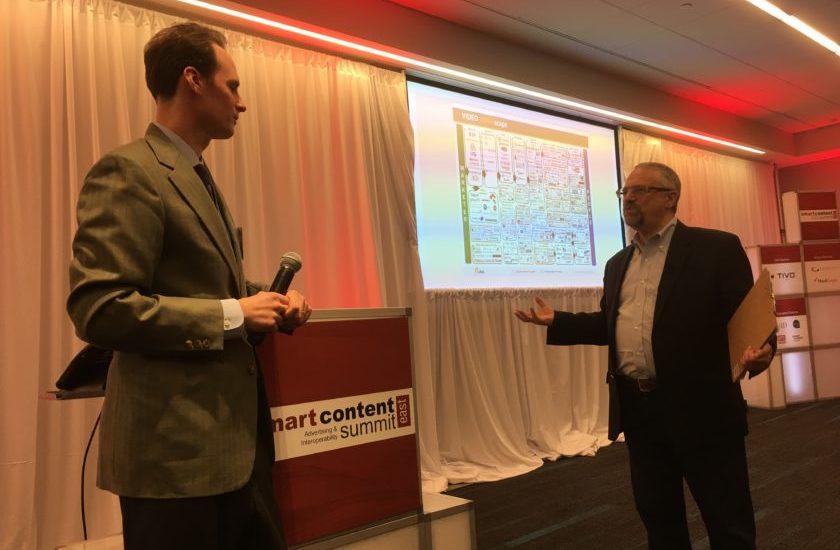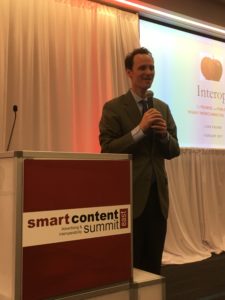Exclusives

Smart Content Summit Keynoter: Benefits of Interoperability Outweigh Risks
Story Highlights
NEW YORK — The enormous benefits offered by interoperability far outweigh any of the possible risks, according to John Palfrey, an author and lecturer who has become an expert on the subject.
All those many pounds of extra phone chargers that go to waste each year provide one clear example of just how important it is to have standardization when technology is implemented, he told the Smart Content Summit Feb. 23 at the Microsoft Technology Center. A “more profound” example of the lack of interoperability was the inability for firefighters and police to communicate with each other at the World Trade Center on 9/11, said Palfrey, who is current head of school at Phillips Academy in Andover, Mass. and former executive director of Harvard’s Berkman Center for Internet and Society.
Summing up interoperability, in its most simple terms, as the “art and science of working together,” he pointed to the many benefits of interoperability. They include the ability to innovate better, he said, adding “industries that have higher levels of interoperability tend to have high levels of shared innovation.” It also tends to create more competition, which is good for many companies — although not necessarily so great for “large entrenched players,” who stand to lose their ability to control the market they’re in, he said. He singled out Facebook as a clear example of a company that has benefited from interoperability.
But “there are absolutely risks associated” with interoperability, most obviously when it comes to privacy and security for individuals, he said. For example, when somebody’s data is made more accessible across a wider range of devices, that data may become more susceptible to hackers, he said.
Achieving interoperability can also take a long time to achieve unless it’s a brand new industry, he said.
As examples of industries where interoperability has been slow to achieve, he pointed to the healthcare sector due to the many different players there, air traffic control and its legacy issues, and the complexity inherent in the smart grid as it’s developing.
 “Optimal” interoperability, meanwhile, is generally preferable to “maximum” interoperability, he said, adding there are times in which you can have something that’s “too interoperable” or not interoperable enough – neither of which is good, he said.
“Optimal” interoperability, meanwhile, is generally preferable to “maximum” interoperability, he said, adding there are times in which you can have something that’s “too interoperable” or not interoperable enough – neither of which is good, he said.
Interoperability has been achieved in certain industries by government regulatory threats, especially in Europe, he went on to say, calling that “legislation by threat” because the government threatens an industry with legislation unless they achieve interoperability.
He added: “In general, the non-regulatory approaches have worked very well for industries” in the U.S. and elsewhere.
While some companies have been open to interoperability across their own product lines, they have been much less open when it comes to extending interoperability to other companies, he also noted, singling out Apple as one obvious example. Google, on the other hand, is an example of a company that has been much more open to interoperability across its industry, he said.
The Media & Entertainment Services Alliance (MESA) will hold the next Smart Content Summit March 9 at the Luxe Sunset Boulevard Hotel in Los Angeles. Its focus will be on the integration of data across all business units. The keynote speaker will be Amber Case, Harvard fellow and MIT researcher.









